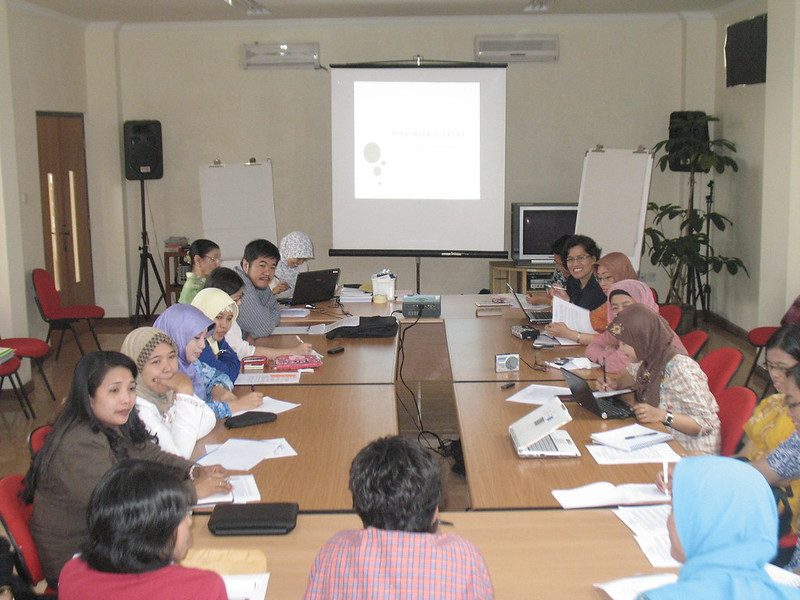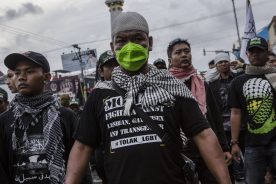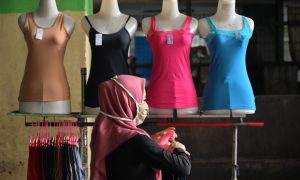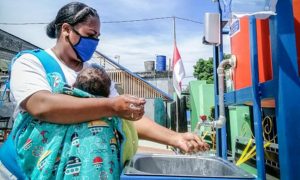The National Commission on Violence Against Women with a network of Indonesian civil society organisations has directed its peacebuilding effort towards the proposition of an Elimination of Sexual Violence Bill through advocacy. It was initiated in 2012. In 2016, the commission and Service Provider Forum had the opportunity to submit a background paper for the bill to the parliament.
This bill embodies the critical value of peacebuilding, that is, meeting the needs and rights of security by managing sexual violence. The proposal addresses material, social, and cultural needs and rights built upon women’s experiences. A wide range of categorizations of sexual violence – sexual harassment, forced marriage, forced contraception, forced abortion, rape, sexual exploitation, forced prostitution, sexual slavery, and sexual torture– in the bill proposed by the commission and civil society demonstrates consideration of these needs and rights. Sexual violence has many faces, and these categories accommodate more forms of sexual violence to be processed legally. As a peacebuilding instrument, this bill’s content seeks an opportunity to prevent and reduce any form of sexual violence.
The work of peacebuilding is multi-dimensional. According to Lisa Schirch, peacebuilding covers any form of prevention of violence, reduction, transformation, and/or recovery. This wide range of work aims at sustainability. It also shows that there is no single path toward peace. The proposal was initiated against a background of increasing violence against women and children in Indonesia. Yet, several recent cases show the significance of this bill for all sexualities and genders, for instance, a recent case heard by Commission, in relation sexual violence committed against a male staff member at the Indonesian Broadcasting Commission.
The damage survivors sustain from sexual violence is massive. Superficially it may seem that sexual violence is merely a matter of direct physical assault. In fact, the damage is also inflicted through cultural and structural violence, in which women are positioned as inferior, stigmatised and blamed for sexual violence. Meanwhile, perpetrators are often treated with impunity and there are few legal protections for survivors, who must endure traumatic legal process to resolve charges.
The war on homosexuality in Indonesia
How hetero- and homo-nationalisms are colliding in debates about LGBT rights.
This bill aspires to be a foundation of transformation and recovery. The clauses on the assurance of survivor’s rights, recovery, and protection reflect this aspiration. Vigorous law enforcement with a survivor-centred perspective can transform the safety of women in society by pivoting on principles of justice and fairness. The law’s capacity to enable this transformation can be enhanced by legally binding mechanisms to enforce compliance. It can be the foundation of derived legal product or regulation, including fill the gap of anti-sexual violence regulation in education institution. On the other hand, survivor’s well-being should remain the focus. Survivors’ recoveries positively impact their personal development and social transformation by breaking the chain of violence.
In other words, the initial draft bill developed from background study for the legislation by the commission and Service Provider Forum is intended to abolish direct, cultural, and structural violence. The primary domain of this bill, if it is passed, is in mitigating structural violence where current regulations fail to accommodate women’s experiences. As a proposed law, it can help to construct an ‘infrastructure of peace’ in Indonesia by creating structural mechanisms to abolish sexual violence, even if there are shortcomings in Indonesian law enforcement.
The change of substance and nomenclature of the Elimination of Sexual Violence Bill to the term Sexual Violence Criminal Offence hampers the attainment of peace, particularly for women in Indonesia. The new bill cuts sexual violence to only four categories. It also abandons survivor’s rights, recovery, and protection clauses that matter in serving security. The parliament’s act in curtailing the bill’s substance has also curtailed its power to eliminate sexual violence.
Realising peace through peacebuilding requires cooperation from all parties. The National Commission on Violence Against Women and Indonesian civil society organisations, especially the Service Provider Forum, has built the path. The parliament and the government, who hold the authority to legislate regulation should support rather than diminish the survivor-centred version of the bill.
In my life and in my identity, my position as a woman has exposed me to many forms of violence, making me question what peace is. As a survivor of sexual violence, this bill gives me hope to find every-day peace. Any reduction to it keeps a peaceful life away from me, and other women in Indonesia exposed to sexual violence every day.
 Facebook
Facebook  Twitter
Twitter  Soundcloud
Soundcloud  Youtube
Youtube  Rss
Rss 



